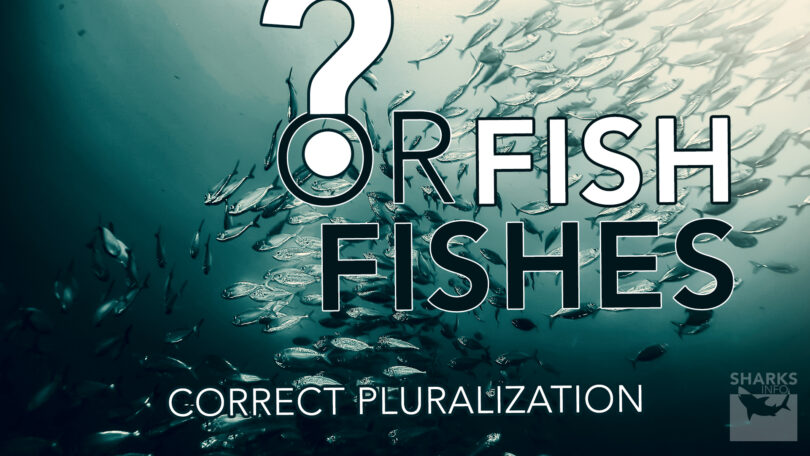Language is a living phenomenon that changes through time and in response to societal factors. Arguments over how to properly use particular phrases or grammatical norms often come up. One such argument that has aroused interest and debate among linguists revolves around the correct plural form of “fish” which should either be “fish” or “fishes.” To ultimately settle the long-standing argument, we shall examine both forms’ linguistic foundations, historical circumstances, and usage trends in this article.
Origins Of “Fish” And “Fishes”
The word “fish” was first spelled correctly in Old English, where it was implied as “fisc”. The word went through many phonological changes in the past before becoming “fish” as we know it today. Similar to how “deer” is used now, “fisc” was used in Old English as both a singular and plural noun. However, the word “fishes” began to appear as a unique alternative throughout the Middle English era.
Contextual Considerations
The level of complexity of the English language grew as it evolved. Contextual factors have become significant when choosing whether it is “fish” or “fishes”:
Scientific Context: “Fishes” became well-known in scientific scenarios where accuracy, as well as precision, is mandatory. To highlight the diversity and uniqueness of each group, scientists use the term “fishes” to refer to a variety of fish species or groups of fish.
Nautical Terminology: In nautical contexts, “fish” can refer to a variety of fish that have been captured for food or sport. An enthusiastic fisherman may say, “I caught ten fish today!” as an example. The choice of word for “fish” in this case is likely influenced by the nautical link.
Poetic and Literary Expression: Authors and poets frequently choose rhythm and aesthetics to formal linguistic standards. The melodic appeal of “fishes” has made it popular in literary and artistic works since it enables authors to create attractive lines without worrying about formal grammar.
Linguistic Principles
There are certain guidelines for creating plurals in the English language. Nouns can often be made plural by adding “-s” or “-es” to the single form. In the case of “fish,” the plural form “fishes” follows the convention of adding “-es” to create plurals. This is consistent with other everyday plurals, such as “wishes” and “dishes.” On the other hand, the plural form of “fish” is seen as being irregular, comparable to the singular and plural forms of the words “sheep” and “deer”.
Modern Usage and Preferences
As the use of language evolves, so do our choices about how to pluralize “fish.” Both “fish” and “fishes” are often considered acceptable plurals in contemporary English. However, each form has certain subtleties and implications that influence its usage. For instance:
“Fish” (Plural): In ordinary English, this is the plural form that is used most frequently. In a broad sense, it often refers to a variety of fish from the same species or mixed species.
Example: “The fishermen caught many fish today.”
“Fishes” (Plural): It is frequently used in writing that is highly specialized or scientific. It highlights different fish species or groups within a certain habitat.
Example: “The biologist studied various fishes living in the coral reef.”
Resolving The Debate – Fish or Fishes
Though there are legitimate arguments on both sides of the fish vs. fishes debate, it is important to recognize that language is flexible and always evolving. The adaptability and ability of English to adjust to the requirements of its speakers make it a more attractive language.
In everyday conversations, the use of “fish” in both the singular and plural continues to be accepted as normal and is likely to remain the preferred form. However, sticking to the conventional difference between “fish” and “fishes” might be helpful in scientific, academic, or formal situations where precision and simplicity are paramount.
Final Thoughts
Both “fish” and “fishes” have strong linguistic foundations in the longstanding argument over the proper pluralization of “fish.” These two feasible types, each of which serves a different function, are the result of the long history of the English language. Generally speaking, “fish” is preferable for informal, daily usage since it encompasses many fish without placing a focus on particular species. However, “fish” is appropriate in more exceptional contexts, such as in scientific animal reports, where specific species or groups of fish are mentioned. Based on the logic and context of the statement both “fish” and “fishes” are acceptable.







